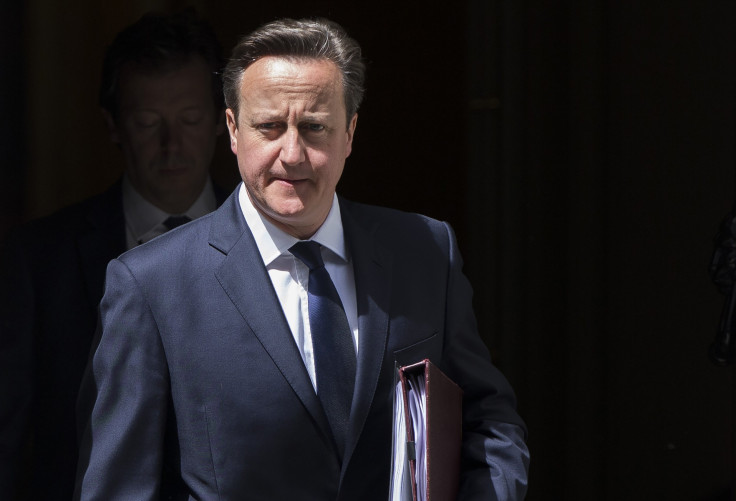ISIS Teen Recruitment: Why David Cameron Wants A 'Deradicalization' To Stop Islamic State Group's Influence In UK

Prime Minister David Cameron has for months pitched the idea of a so-called deradicalization program that would prevent the Islamic State group, or ISIS, from recruiting young teens and luring them to Syria to join or fight for the militants there. He has called the United Kingdom "a successful, multiracial, multifaith democracy" where Muslims have made a "profound contribution," and his government has talked about encouraging Syrians, Iraqis and Kurds in the United Kingdom to speak out against extremism.
Now, as the government revealed more details Monday about what that would actually constitute, it's worth revisiting the demographics of whom the government expects to spearhead this 5-million-pound program, and whom it would affect.
The so-called deradicalization plan dates back to July, when Cameron proposed a five-year plan to stop the flow of what his government said was 2,000 fighters from the United Kingdom joining ISIS in Iraq and Syria. Home Secretary Theresa May said that the government would "systematically confront and challenge extremist ideology," including by banning purportedly radical preachers from posting material on the Internet and from working with children, as well as by requiring some people to attend deradicalization classes if they were deemed a threat.
Law enforcement officials would be given freer rein to crack down on facilities or organizations that supported extremism. May said that the stricter regulations applied to extremists of all colors, from neo-Nazis to those who support groups like ISIS, the BBC reported Monday.
But how many foreign militants with the Islamic State group are actually British, or how many fighters have actually flocked from the United Kingdom to Syria or Iraq to join the militant group? Estimates vary. One MP has said that 2,000 Britons have gone to Syria and Iraq to fight for the group. One police estimate puts it at 700. Another estimate states that a quarter of foreign militants fighting for ISIS are British.
Some 2.7 million Muslims live in the United Kingdom, constituting about 4.5 percent of the population. Nearly half of Muslims in the United Kingdom were born there, and together they are an ethnically diverse. Asians, listed as Indian, Pakistani, Bangladeshi, Chinese or "other Asian, comprise more than two thirds of the U.K.'s Muslims, for instance, while Arabs -- those the government expects to step up and speak out against extremists -- constituted 3.6 percent of Muslims in the country. Eight percent of the U.K. Muslim population is white. Nearly three-quarters of Muslims hold only a British passport. Levels of unemployment among Muslims are slightly higher than among the general population.
The Muslim Council of Britain, meanwhile, has been highly critical of the government's plan, saying it actually threatens to undermine efforts to fight terrorism and "could be counter-productive and risks alienating Muslim communities."
The group said in a statement released Monday, "Today’s ‘one nation’ counter-extremism strategy continues down a flawed path, focusing on Muslims in particular, and are based on fuzzy conceptions of British values," adding, "The strategy will reinforce perceptions that all aspects of Muslim life must undergo a ‘compliance’ test to prove our loyalty to this country. These measures could be seen more as a means to address the anxieties a minority of people may have against Muslims and their religious life, rather than the scourge of terrorism itself."
© Copyright IBTimes 2024. All rights reserved.





















